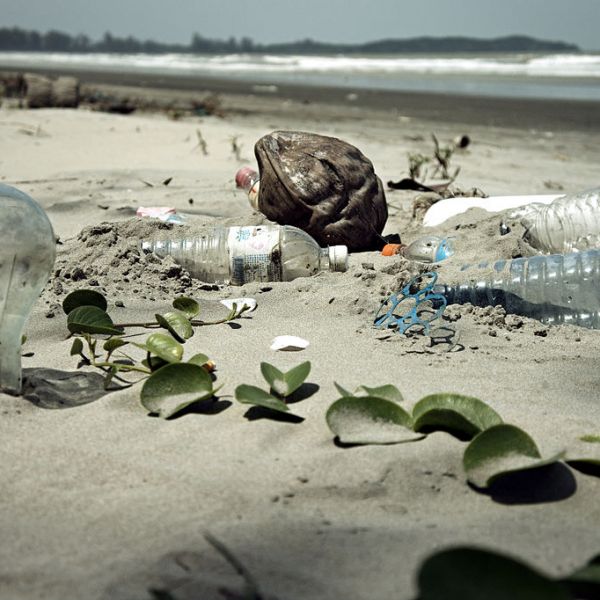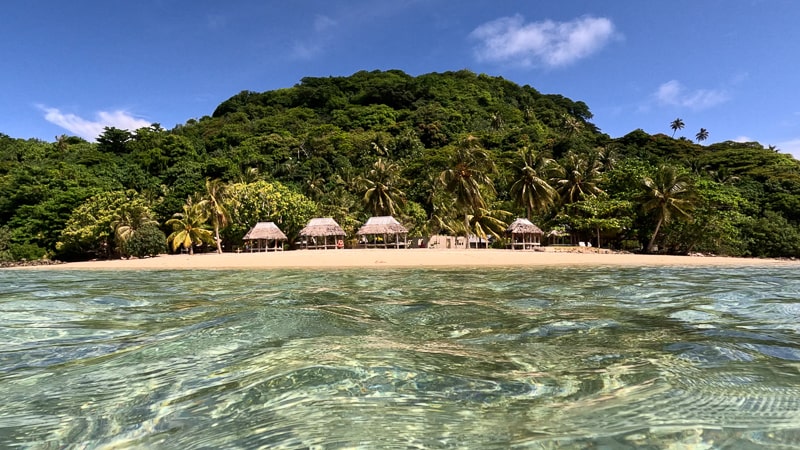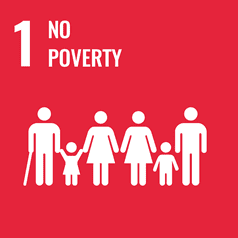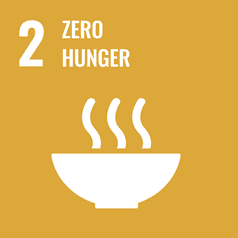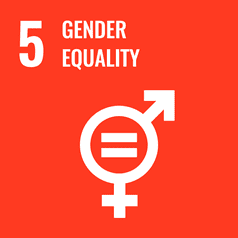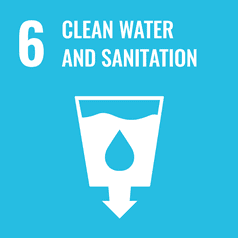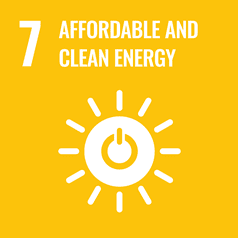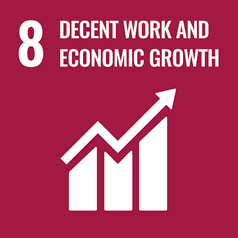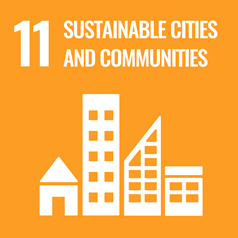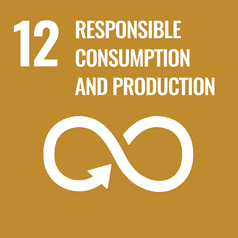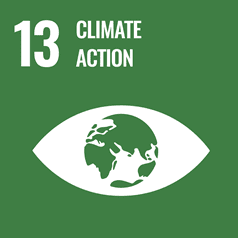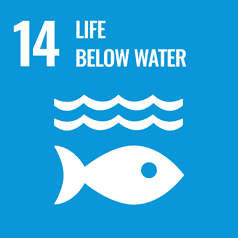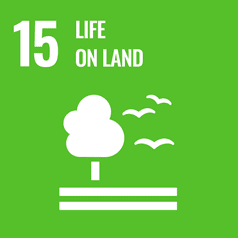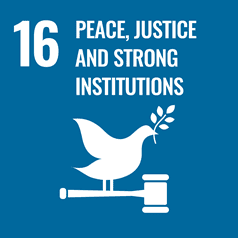Partnering with the Pacific for a greener future
Environmental anthropologist Dr Sascha Fuller is committed to delivering cooperative solutions to mitigate the environmental, climate and waste challenges faced by Pacific Island communities.
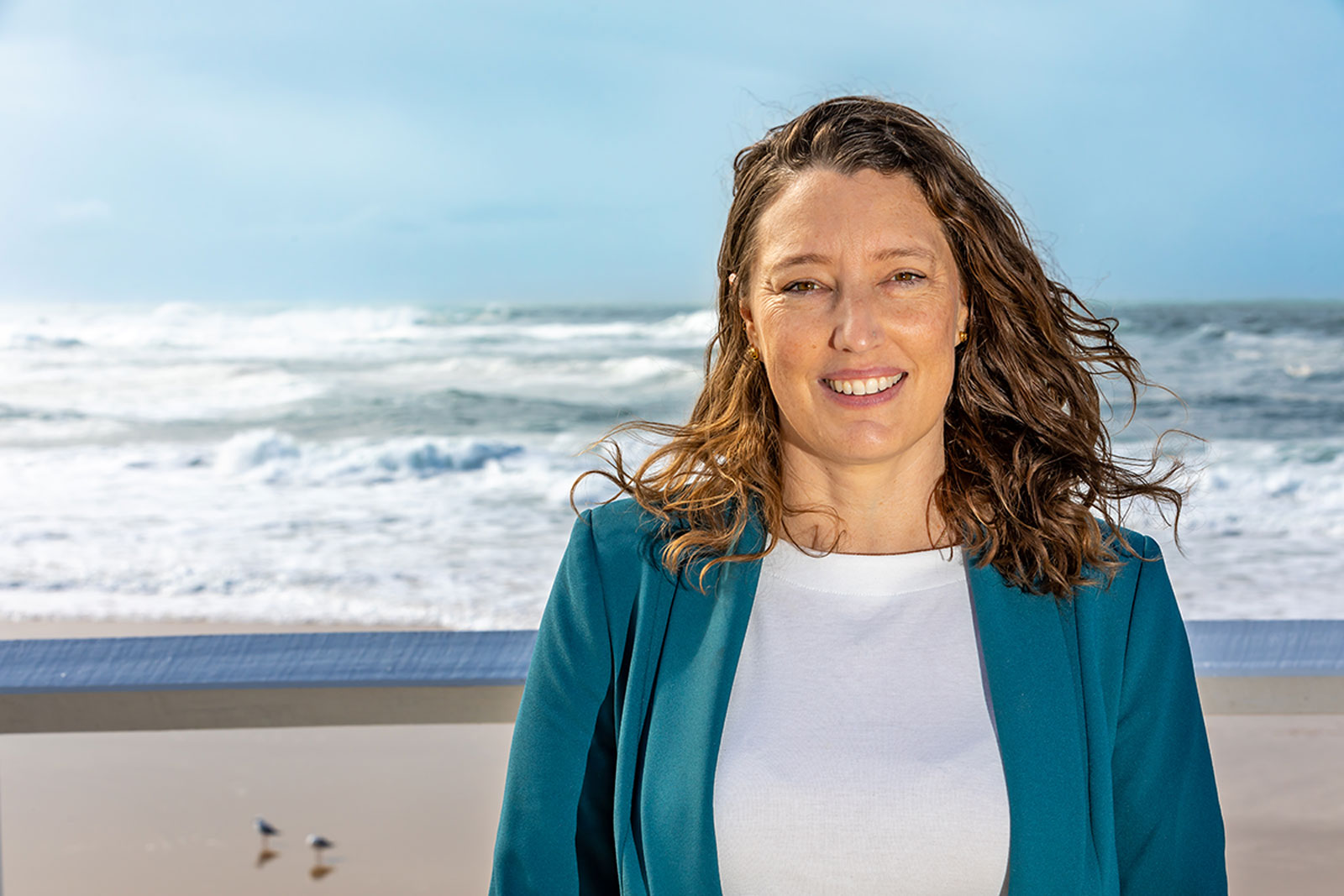
With over 15 years research and field experience in the Pacific, Australia, New Zealand, Nepal and Mexico, Sascha coordinates the University of Newcastle's Pacific Node in partnership with the Secretariat of the Pacific Regional Environment Programme (SPREP).
A strategic initiative administered by leading research institute, the Newcastle Institute for Energy and Resources (NIER), the Pacific Node provides a flexible framework to support the resilience and sustainability of Pacific communities who are under increasing environmental, economic and social pressures.
Drawing upon her experience in the international development and tertiary education sectors, Sascha is a key contributor in delivering the University's strategy for international engagement in the Pacific region and helping to support the maintenance of ecosystem health and biodiversity.
“As an environmental anthropologist, I’m interested in the diverse ways people interact with, perceive, and value ‘environment’. This includes the way people pollute and conserve the natural world,” says Sascha.
“I’ve been fortunate enough to work across cultures to better comprehend how global issues such as climate change and plastics pollution play out in local communities, to better understand who is involved, and what is at stake.”
Sascha’s research focuses on human-environment relations, in particular plastics pollution and climate change, and their intersection with other environmental, sociocultural, political and economic issues. This includes gender, human rights, and development assistance, which present both risks and opportunities for rural and regional livelihoods and resilience.
Research for a better tomorrow
Sascha’s recent collaborative research paper Plastics Pollution as Waste Colonialism in Te Moananui, published by the Journal of Political Ecology, explored the impact of plastics pollution in the Pacific Islands (Te Moananui).
The findings demonstrate that prioritising the perspectives of Indigenous caretakers, rather than the concerns of settler-colonisers and commercial companies with vested interests, is crucial to reversing plastic pollution and ending the exploitation of Te Moananui as a dumping ground.
“The overall aim of my research is to help establish positive outcomes for society, environment, and culture, by demonstrating the policy considerations required to effectively protect the environment, human health, and minority groups from the harmful impacts of plastic pollution,” says Sascha.
“I’m particularly concerned with mitigating the gendered impacts of environmental and development interventions and decision-making.”
Despite their known harms, Sascha says that the rate of toxic plastics production and consumption is accelerating worldwide.
“The global pandemic has had a significant impact on our demand for single-use plastics, which are ironically marketed as healthy and sanitary. But many single use plastics are problematic because of their toxic nature, and this makes them incredibly unhealthy, both for our environment and for humans.”
Te Moananui is grossly and disproportionally affected by plastics pollution due to its physical location and inherent colonialism which has impacted Te Moanani peoples’ spiritual, social, cultural, economic and social ties with their Ocean.
Sascha says a return to Indigenous-led solutions may be the only hope to reverse the plastics pollution which is threatening the health and livelihoods of the Pacific Island people.
“My recent plastics pollution research has helped facilitate networks and knowledge brokerage across the Pacific region, highlighting the challenges facing Pacific Island communities,” says Sascha.
“It’s had the greatest impact by providing an information and evidence base for Pacific island government representatives to use and negotiate plastic pollution prevention policy for their own nation states.”
Sascha notes that collaboration with the Secretariat of the Regional Environment Programme (SPREP), the Environmental Investigation Agency (EIA), the Center for International Environmental Law (CIEL) and Dr Trisia Farrelly, from Massey University, has been crucial to the impact of this research.
Additional Research
Sascha co-authored the article The Strengths and Weaknesses of Pacific Islands Plastic Pollution Policy Frameworks and co-developed five plastics pollution prevention factsheets: A Safe(r) Circular Economy for Plastics in the Pacific Region; Plastics Pollution Prevention Policy Gaps in the Pacific Region; Plastics, Marine Litter, and Climate in the Pacific Region; Plastics Impacts on Human Health in the Pacific Region; and Plastics Pollution Impacts on Human Rights in the Pacific Region.
She also supported the drafting of the Pacific Regional Declaration on the Prevention of Marine Litter and Plastic Pollution and was one of 15 scientists to draft the Scientists’ Declaration on plastic pollution.
Sascha is currently supervising four PhD candidates and one Honours student who are working in partnership with the Secretariat of the Pacific Regional Environment Programme (SPREP) on projects related to invasive species management, coral reef ecosystem resilience, and compliance to the International Convention for the Prevention of Pollution from Ships.
“I hope to continue to build relationships and collaborations that will help drive solutions to matters of critical environmental concern. I’m looking forward to the first meeting of the Intergovernmental Negotiating Committee (INC) on a treaty to ‘End plastics pollution’ to be held in Uruguay in November.”
Partnering with the Pacific for a greener future
With over 15 years research and field experience in the Pacific, Australia, New Zealand, Nepal and Mexico, Sascha coordinates the University of Newcastle's Pacific Node in partnership with the Secretariat of the Pacific Regional Environment Programme (SPREP).
Career Summary
Biography
Dr Sascha Fuller is an environmental anthropologist and development practitioner with over 15 years research and field experience in the Pacific, Australia, New Zealand, Nepal and Mexico, coordinates the University of Newcastle's Pacific Node.
Appointment of the Pacific Node Coordinator strengthens the University of Newcastle’s commitment to deliver co-operative solutions to challenges faced by Pacific island communities through collaborate research, in-country capacity building, knowledge generation, and sharing.
Pacific Island nations are striving to balance the needs and economic aspirations of growing populations, with the maintenance of ecosystem health and biodiversity. To support this, the University of Newcastle has partnered with the Secretariat of the Pacific Regional Environment Programme (SPREP) to create a Pacific Island research ‘node’. A strategic initiative administered by leading research institute NIER, the Pacific Node provides a flexible framework to support the resilience and sustainability of the Pacific’s most at-risk communities who are under increasing environmental, economic and social pressures.
Drawing upon her experience in the international development and tertiary education sectors, Sascha is a key contributor to deliver the University's strategy for international engagement in the Pacific region by:
- Advancing research cooperation between academics and multiple stakeholders to develop innovative sustainable solutions to regional priorities to ensure Pacific people’s livelihoods and culture remain intact
- Enhancing capacity development by overseeing a targeted Pacific PhD cohort and developing and promoting training modules with Pacific partners
- Driving student mobility and student learning through New Colombo Plan and Work Integrated Learning opportunities
Sascha’s research focuses on human-environment relations, in particular, plastics pollution and climate change, and their intersection with other environmental, sociocultural, political and economic issues, including gender, human rights, and development assistance, which present both risks and opportunities for rural and regional livelihoods and resilience.
Over the last four years Sascha has worked alongside a coalition from Massey University, the Environmental Investigation Agency,UK (EIA), the Center for International Environmental Law, the Secretariat of the Pacific Regional Environment Programme, the United Nations Environment Programme and Governments from the Pacific region to support plastics pollution prevention in the Pacific Region in the lead up to the UN Environment Assembly's negotiations on the now adopted resolution for a new legally binding global treaty on plastics.
Plastic pollution is a global environmental, social, and economic emergency.
Sascha co-authored the articles Plastic Pollution as Waste Colonialism in Te Moananui and The Strengths and Weaknesses of Pacific Islands Plastic Pollution Policy Frameworks and co-developed five plastics pollution prevention factsheets: A Safe(r) Circular Economy for Plastics in the Pacific Region; Plastics Pollution Prevention Policy Gaps in the Pacific Region; Plastics, Marine Litter, and Climate in the Pacific Region; Plastics Impacts on Human Health in the Pacific Region; and Plastics Pollution Impacts on Human Rights in the Pacific Region. She supported the drafting of the Pacific Regional Declaration on the Prevention of Marine Litter and Plastic Pollution and was one of seventeen scientists to draft the Scientists’ Declaration on plastic pollution.
Sascha is currently supervising four PhD candidates and one Honours student who are working in partnership with SPREP on projectsrelated to invasive species management, coral reef ecosystem resilience, and compliance to the International Convention for the Prevention of Pollution from Ships.
Qualifications
- Doctor of Philosophy, University of Sydney
- Bachelor of Arts (Honours), University of Newcastle
Keywords
- anthropology
- climate change
- development studies
- education
- environmental change
- gender
- human rights
- livelihoods
- plastic pollution
- social inclusion
Languages
- English (Mother)
- Nepali (Working)
Fields of Research
| Code | Description | Percentage |
|---|---|---|
| 440101 | Anthropology of development | 40 |
| 440104 | Environmental anthropology | 60 |
Professional Experience
UON Appointment
| Title | Organisation / Department |
|---|---|
| Senior Lecturer | University of Newcastle School of Health Sciences Australia |
Awards
Recipient
| Year | Award |
|---|---|
| 2018 |
ANSA (Australian Network of Student Anthropologists) Travel Grant Award ANSA - Australian Network of Student Anthropologists |
| 2012 |
Australian Anthropological Society Robyn Wood Travel Grant Australian Anthropological Society (AAS) |
Recognition
| Year | Award |
|---|---|
| 2008 |
The Architectural Science Association (ANZASCA) Best Research Paper Award (Education) ANZASCA - The Architectural Science Association |
| 2007 |
Faculty Medal: Sociology/Anthropology, University of Newcastle, Australia Faculty of Education and Arts, University of Newcastle |
Scholarship
| Year | Award |
|---|---|
| 2012 |
Ben Sanford Cullen Award (Research Scholarship), University of Sydney, Australia The University of Sydney |
| 2010 |
Peter Lawrence and Carlyle Greenwell Postgraduate Research Scholarship in Anthropology, Department of Anthropology, University of Sydney The University of Sydney |
| 2002 |
UMAP (University Mobility in the Asia-Pacific region) Newcastle – Mexico Research Scholarship, University of Newcastle, Australia The University of Newcastle |
Publications
For publications that are currently unpublished or in-press, details are shown in italics.
Chapter (4 outputs)
| Year | Citation | Altmetrics | Link | ||
|---|---|---|---|---|---|
| 2025 |
Everingham P, Lai PH, Fuller S, 'Exploring potentials for coral reef restoration in Pacific Small Island Developing States (PSIDS) as regenerative tourism', 373-385 (2025)
|
||||
| 2016 | Fuller S, 'When climate change is not the concern: Realities and futures of environmental change in village Nepal', 129-144 (2016) | ||||
| 2009 | Fuller SR, Ostwald M, Williams AP, 'Student motivation and participation in architectural education: Academic staff perceptions', 143-154 (2009) [B1] | Open Research Newcastle | |||
| 2009 | Ostwald M, Williams AP, Fuller SR, 'The professional accreditation of architecture programs: Academics' perceptions', 127-141 (2009) [B1] | Open Research Newcastle | |||
| Show 1 more chapter | |||||
Conference (3 outputs)
| Year | Citation | Altmetrics | Link |
|---|---|---|---|
| 2008 | Ostwald M, Williams AP, Fuller SR, 'The value of the professional accreditation process in Australasia: Architectural academics perceptions', ANZAScA 2008: Proceedings of the 42nd Annual Conference of the Australian and New Zealand Architectural Science Association, 77-84 (2008) [E1] | Open Research Newcastle | |
| 2008 | Fuller SR, Ostwald M, Williams AP, 'Academic staff perceptions of students' motivation and participation in architectural education', ANZAScA 2008: Proceedings of the 42nd Annual Conference of the Australian and New Zealand Architectural Science Association, 369-375 (2008) [E1] | Open Research Newcastle | |
| 2007 | Williams AP, Ostwald M, Fuller SR, 'Issues confronting architectural education in Australia', IASDR'07: International Association of Societies of Design Research 2007. Proceedings, 1-17 (2007) [E1] | Open Research Newcastle |
Journal article (10 outputs)
| Year | Citation | Altmetrics | Link | ||||||||
|---|---|---|---|---|---|---|---|---|---|---|---|
| 2025 |
Alston M, Fuller S, Kwarney N, 'Women and climate change in Vanuatu, Pacific Islands Region', GENDER PLACE AND CULTURE, 32, 83-104 (2025) [C1]
|
Open Research Newcastle | |||||||||
| 2025 |
Chan CMH, Owers CJ, Fuller S, Hayward MW, Moverley D, Griffin AS, 'Capacity and capability of remote sensing to inform invasive plant species management in the Pacific Islands region', CONSERVATION BIOLOGY [C1]
|
Open Research Newcastle | |||||||||
| 2024 |
Peryman M, Cumming R, Ngata T, Farrelly TA, Fuller S, Borrelle SB, 'Plastic pollution as waste colonialism in Aotearoa (New Zealand)', MARINE POLICY, 163 (2024) [C1]
The international discourse around waste colonialism has highlighted the often imbalanced power dynamics evident in the transboundary movement of waste. While plastic p... [more] The international discourse around waste colonialism has highlighted the often imbalanced power dynamics evident in the transboundary movement of waste. While plastic pollution as a form of waste colonialism has been explored in some overseas contexts, its impact and resonance in Aotearoa (New Zealand) remains poorly understood. This study addresses this gap through interviews with several specialists in the fields of plastic pollution, zero waste, circular economic development, and Indigenous sovereignty. Taking a full life-cycle approach to understanding plastic pollution, this study explores the interconnections between plastics, power, and people to better understand how Aotearoa could holistically respond to the plastic pollution crisis. The study found that colonial governmental and economic systems have enabled a widespread disconnection between plastic consumption and its socio-ecological consequences. Plastic pollution as waste colonialism also perpetuates significant inequities for Aotearoa's most disenfranchised communities, including Maori, Pasifika, and low-income households. This demonstrates the need for genuine representation of these communities in all relevant decision-making contexts and holistic, systemic transformation to address plastic pollution as waste colonialism.
|
Open Research Newcastle | |||||||||
| 2022 |
Fuller S, Ngata T, Borrelle SB, Farrelly T, 'Plastics pollution as waste colonialism in Te Moananui', Journal of Political Ecology, 29, 534-560 (2022) [C1]
|
Open Research Newcastle | |||||||||
| 2022 |
Ahmed I, Johnson T, Fuller S, Guinto MB, Sagapolutele F, 'Strengthening Capacity in Disaster Waste Management in Vanuatu', SUSTAINABILITY, 14 (2022) [C1]
|
Open Research Newcastle | |||||||||
| 2021 |
Farrelly TA, Borrelle SB, Fuller S, 'The Strengths and Weaknesses of Pacific Islands Plastic Pollution Policy Frameworks', SUSTAINABILITY, 13 (2021) [C1]
|
Open Research Newcastle | |||||||||
| 2021 |
Fuller S, 'Human-buffalo conflicts and intimacies in 'modernising' Nepal', AUSTRALIAN JOURNAL OF ANTHROPOLOGY, 32, 289-308 (2021) [C1]
|
Open Research Newcastle | |||||||||
| 2021 |
Carter M, Goodsir F, Cundall P, Devlin M, Fuller S, Jeffery B, Hil G, Talouli A, 'Ticking ecological time bombs: Risk characterisation and management of oil polluting World War II shipwrecks in the Pacific Ocean', MARINE POLLUTION BULLETIN, 164 (2021) [C1]
|
Open Research Newcastle | |||||||||
| 2020 |
Fuller S, 'Education, gender, and generational change: The transformation of dowry in village Nepal', AUSTRALIAN JOURNAL OF ANTHROPOLOGY, 31, 240-256 (2020) [C1]
|
Open Research Newcastle | |||||||||
| 2015 |
Williams LT, Germov J, Fuller S, Freij M, 'A taste of ethical consumption at a slow food festival', APPETITE, 91, 321-328 (2015) [C1]
This paper examines the motives and experiences of attendees at a Slow Food festival to gain an understanding of how people engage with ethical consumer projects. Slow ... [more] This paper examines the motives and experiences of attendees at a Slow Food festival to gain an understanding of how people engage with ethical consumer projects. Slow Food is a global social movement aimed at promoting food that is regionally, ethically, and sustainably produced, and convivially consumed. The movement uses culinary tourist events, such as food festivals and farmers' markets, to promote its philosophy and attract new members. There have been no empirical studies of ethical consumption using a Slow Food event as a case study. This study uses an ethnographic approach and a framework of virtue ethics to explore the views of people attending a major Slow Food festival in the city of Melbourne, Australia. Semi-structured interviews were conducted in situ with 33 participants (19 consumers and 14 stallholders) to discover their rationales for attending the festival, and their perspectives on ethical consumption. Transcripts were coded and thematically analysed, resulting in three themes reflecting varying degrees of public virtues (altruistic motivations) and private virtues (personal wellbeing): the quest for virtuous lifestyles through ethical consumption, the importance of co-production, and the challenges of putting ethical consumer projects like Slow Food into daily practice. The findings reveal the manner in which virtue ethics affects foodways and highlights the contingent and challenging nature of practising ethical eating.
|
Open Research Newcastle | |||||||||
| Show 7 more journal articles | |||||||||||
Grants and Funding
Summary
| Number of grants | 20 |
|---|---|
| Total funding | $3,592,852 |
Click on a grant title below to expand the full details for that specific grant.
20252 grants / $1,470,270
AAPNG Graduate Certificate of Nutrition$1,186,023
Funding body: Department of Foreign Affairs and Trade (DFAT), Australia
| Funding body | Department of Foreign Affairs and Trade (DFAT), Australia |
|---|---|
| Project Team | Professor Lesley MacDonald-Wicks; Dr Sascha Fuller; Associate Professor Amanda Patterson |
| Scheme | Australia Awards Fellowships Papua New Guinea (AAPNG) |
| Role | Investigator |
| Funding Start | 2025 |
| Funding Finish | 2026 |
| GNo | |
| Type Of Funding | C1500 - Aust Competitive - Commonwealth Other |
| Category | 1500 |
| UON | N |
Towards Nutrition Security (Papua New Guinea)$284,247
Funding body: Department of Foreign Affairs and Trade (DFAT), Australia
| Funding body | Department of Foreign Affairs and Trade (DFAT), Australia |
|---|---|
| Project Team | Professor Lesley MacDonald-Wicks; Associate Professor Amanda Patterson; Dr Katherine Brain |
| Scheme | Australian Awards Fellowships |
| Role | Lead |
| Funding Start | 2025 |
| Funding Finish | 2026 |
| GNo | |
| Type Of Funding | C1500 - Aust Competitive - Commonwealth Other |
| Category | 1500 |
| UON | N |
20242 grants / $1,496,935
AAPNG Short Course Graduate Certificate in Nutrition$1,224,000
Funding body: Department of Foreign Affairs and Trade (DFAT), Australia
| Funding body | Department of Foreign Affairs and Trade (DFAT), Australia |
|---|---|
| Project Team | Associate Professor Lesley MacDonald-Wicks; Dr Sascha Fuller; Associate Professor Amanda Patterson |
| Scheme | Australia Awards Fellowships Papua New Guinea (AAPNG) |
| Role | Investigator |
| Funding Start | 2024 |
| Funding Finish | 2025 |
| GNo | |
| Type Of Funding | C1500 - Aust Competitive - Commonwealth Other |
| Category | 1500 |
| UON | N |
GEF 7 Project - Enhancing Nature’s Unique Areas (ENUA) : Catchment audit activities$272,935
Funding body: National Environment Service
| Funding body | National Environment Service |
|---|---|
| Project Team | Prof Troy Gaston, Dr Sascha Fuller, Prof Bill Leggat |
| Scheme | Global Environment Facility Project |
| Role | Investigator |
| Funding Start | 2024 |
| Funding Finish | 2026 |
| GNo | G2400894 |
| Type Of Funding | C3700 – International Govt – Own Purpose |
| Category | 3700 |
| UON | Y |
20236 grants / $226,695
Ecosystem assessment Samoa Moata’a mangroves$128,303
Funding body: Secretariat of the Pacific Regional Environment Programme (SPREP)
| Funding body | Secretariat of the Pacific Regional Environment Programme (SPREP) |
|---|---|
| Project Team | Prof Troy Gaston, Dr Sascha Fuller, Prof Bill Leggat, Assoc Prof Geoff Mac Farlane |
| Scheme | Research Grant |
| Role | Investigator |
| Funding Start | 2023 |
| Funding Finish | 2024 |
| GNo | G2300861 |
| Type Of Funding | C3500 – International Not-for profit |
| Category | 3500 |
| UON | Y |
The provision of laboratory testing and analysis for island biodiversity monitoring in the Vavau islands in Tonga$40,000
Funding body: Secretariat of the Pacific Regional Environment Programme (SPREP)
| Funding body | Secretariat of the Pacific Regional Environment Programme (SPREP) |
|---|---|
| Project Team | Prof Matthew Hayward, Dr Sascha Fuller, Prof Troy Gaston, Assoc Prof Andrea Griffin, Assoc Prof Michael Stat |
| Scheme | Research Grant |
| Role | Investigator |
| Funding Start | 2023 |
| Funding Finish | 2023 |
| GNo | G2300057 |
| Type Of Funding | C3500 – International Not-for profit |
| Category | 3500 |
| UON | Y |
Understanding the impacts of rat eradication programmes in supporting ecosystem recovery and climate adaptation$29,863
Funding body: Secretariat of the Pacific Regional Environment Programme (SPREP)
| Funding body | Secretariat of the Pacific Regional Environment Programme (SPREP) |
|---|---|
| Project Team | Prof Matthew Hayward, Dr Sascha Fuller, Assoc Prof Andrea Griffin, Miss Siosina Katoa |
| Scheme | PhD Scholarship |
| Role | Investigator |
| Funding Start | 2023 |
| Funding Finish | 2023 |
| GNo | G2300741 |
| Type Of Funding | C3500 – International Not-for profit |
| Category | 3500 |
| UON | Y |
Developing a Pacific Waste Curriculum Toolkit for Pacific Island Nations$15,055
Funding body: Secretariat of the Pacific Regional Environment Programme (SPREP)
| Funding body | Secretariat of the Pacific Regional Environment Programme (SPREP) |
|---|---|
| Project Team | Dr Sascha Fuller, Dr Robertson Burgess, Dr Robertson Burgess |
| Scheme | Research Grant |
| Role | Lead |
| Funding Start | 2023 |
| Funding Finish | 2023 |
| GNo | G2301123 |
| Type Of Funding | Scheme excluded from IGS |
| Category | EXCL |
| UON | Y |
Data analysis of Marine pollution originating from purse seine and longline fishing vessel operations in the Western and Central Pacific region$7,745
Funding body: Secretariat of the Pacific Regional Environment Programme (SPREP)
| Funding body | Secretariat of the Pacific Regional Environment Programme (SPREP) |
|---|---|
| Project Team | Prof Troy Gaston, Dr Sascha Fuller |
| Scheme | Research Grant |
| Role | Investigator |
| Funding Start | 2023 |
| Funding Finish | 2023 |
| GNo | G2300672 |
| Type Of Funding | C3500 – International Not-for profit |
| Category | 3500 |
| UON | Y |
Exploring a place-based regenerative tourism model in the resort sector in Samoa$5,729
Funding body: University of Newcastle
| Funding body | University of Newcastle |
|---|---|
| Project Team | Doctor Po-Hsin Lai, Dr Sascha Fuller |
| Scheme | Pilot Funding Scheme |
| Role | Investigator |
| Funding Start | 2023 |
| Funding Finish | 2023 |
| GNo | G2300464 |
| Type Of Funding | Internal |
| Category | INTE |
| UON | Y |
20221 grants / $6,000
Climate Change in International Plastic Pollution Policy$6,000
Funding body: Academic Excellence, University of Newcastle
| Funding body | Academic Excellence, University of Newcastle |
|---|---|
| Scheme | SDG Related Research |
| Role | Lead |
| Funding Start | 2022 |
| Funding Finish | 2023 |
| GNo | |
| Type Of Funding | Internal |
| Category | INTE |
| UON | N |
20215 grants / $106,218
Pacific Coral Reef Ecosystem Resilience to Ocean Acidification$39,739
Funding body: Secretariat of the Pacific Regional Environment Programme (SPREP)
| Funding body | Secretariat of the Pacific Regional Environment Programme (SPREP) |
|---|---|
| Project Team | Prof Bill Leggat, Dr Sascha Fuller, Prof Troy Gaston |
| Scheme | Research Grant |
| Role | Investigator |
| Funding Start | 2021 |
| Funding Finish | 2022 |
| GNo | G2001322 |
| Type Of Funding | C3500 – International Not-for profit |
| Category | 3500 |
| UON | Y |
Resilient Ecosystems, Resilient Communities: A situational analysis of the Moata’a community and mangrove environment, Samoa$32,980
Funding body: Secretariat of the Pacific Regional Environment Programme (SPREP)
| Funding body | Secretariat of the Pacific Regional Environment Programme (SPREP) |
|---|---|
| Project Team | Dr Sascha Fuller, Prof Sarah Wright |
| Scheme | Research Grant |
| Role | Lead |
| Funding Start | 2021 |
| Funding Finish | 2022 |
| GNo | G2101213 |
| Type Of Funding | C3500 – International Not-for profit |
| Category | 3500 |
| UON | Y |
Plastic Pollution Impacts on the Human Right to a Healthy Environment$29,507
Funding body: Center for International Environmental Law
| Funding body | Center for International Environmental Law |
|---|---|
| Project Team | Dr Sascha Fuller |
| Scheme | Research Grant |
| Role | Lead |
| Funding Start | 2021 |
| Funding Finish | 2021 |
| GNo | G2100743 |
| Type Of Funding | C3500 – International Not-for profit |
| Category | 3500 |
| UON | Y |
Nippon Foundation Ocean Litter Project$2,602
Funding body: University of Washington
| Funding body | University of Washington |
|---|---|
| Project Team | Dr Sascha Fuller |
| Scheme | Nippon Foundation Research Grant |
| Role | Lead |
| Funding Start | 2021 |
| Funding Finish | 2021 |
| GNo | G2100969 |
| Type Of Funding | C3500 – International Not-for profit |
| Category | 3500 |
| UON | Y |
National Capacity Needs Assessment for PacWastePlus$1,390
Funding body: Secretariat of the Pacific Regional Environment Programme (SPREP)
| Funding body | Secretariat of the Pacific Regional Environment Programme (SPREP) |
|---|---|
| Project Team | Dr Sascha Fuller |
| Scheme | Research Grant |
| Role | Lead |
| Funding Start | 2021 |
| Funding Finish | 2021 |
| GNo | G2101385 |
| Type Of Funding | C3500 – International Not-for profit |
| Category | 3500 |
| UON | Y |
20203 grants / $251,565
Climate Change Impact on the Spread of Invasive Weeds$116,462
Funding body: Secretariat of the Pacific Regional Environment Programme (SPREP)
| Funding body | Secretariat of the Pacific Regional Environment Programme (SPREP) |
|---|---|
| Project Team | Assoc Prof Andrea Griffin, Prof Matthew Hayward, Dr Sascha Fuller, Miss Carrol Chan |
| Scheme | PhD Scholarship |
| Role | Investigator |
| Funding Start | 2020 |
| Funding Finish | 2024 |
| GNo | G2001247 |
| Type Of Funding | C3500 – International Not-for profit |
| Category | 3500 |
| UON | Y |
Understanding the human-invasive species relationship for climate resilient communities$116,462
Funding body: Secretariat of the Pacific Regional Environment Programme (SPREP)
| Funding body | Secretariat of the Pacific Regional Environment Programme (SPREP) |
|---|---|
| Project Team | Dr Sascha Fuller, Prof Matthew Hayward, Assoc Prof Andrea Griffin, Mr William Young |
| Scheme | Research Grant |
| Role | Lead |
| Funding Start | 2020 |
| Funding Finish | 2024 |
| GNo | G2001257 |
| Type Of Funding | C3500 – International Not-for profit |
| Category | 3500 |
| UON | Y |
Plastic Pollution in the Pacific Islands$18,641
Funding body: Environmental Investigation Agency
| Funding body | Environmental Investigation Agency |
|---|---|
| Project Team | Dr Sascha Fuller |
| Scheme | Research Grant |
| Role | Lead |
| Funding Start | 2020 |
| Funding Finish | 2020 |
| GNo | G2000804 |
| Type Of Funding | C3500 – International Not-for profit |
| Category | 3500 |
| UON | Y |
20191 grants / $35,169
Gender and Social Inclusion for Climate Information Services in Vanuatu$35,169
Funding body: Secretariat of the Pacific Regional Environment Programme (SPREP)
| Funding body | Secretariat of the Pacific Regional Environment Programme (SPREP) |
|---|---|
| Project Team | Prof Margaret Alston, Dr Sascha Fuller |
| Scheme | Research Grant |
| Role | Investigator |
| Funding Start | 2019 |
| Funding Finish | 2019 |
| GNo | G1901425 |
| Type Of Funding | C3500 – International Not-for profit |
| Category | 3500 |
| UON | Y |
Research Supervision
Number of supervisions
Current Supervision
| Commenced | Level of Study | Research Title | Program | Supervisor Type |
|---|---|---|---|---|
| 2025 | PhD | O le tofa tatala a Samoa i le atina’eina o malosiaga mama: A Samoan perspective on Clean Energy Transition | PhD (Sociology & Anthropology), College of Human and Social Futures, The University of Newcastle | Principal Supervisor |
| 2024 | PhD | Beyond the Global Framework for Climate Services | PhD (Human Geography), College of Engineering, Science and Environment, The University of Newcastle | Co-Supervisor |
| 2021 | PhD | Understanding the socioecological systems of coral reef management in the tropical Pacific Islands region | PhD (Marine Science), College of Engineering, Science and Environment, The University of Newcastle | Co-Supervisor |
| 2020 | PhD | Understanding the Impacts of Eradicating Rats to Support Ecosystem Recovery | PhD (Environmental Sc), College of Engineering, Science and Environment, The University of Newcastle | Co-Supervisor |
Past Supervision
| Year | Level of Study | Research Title | Program | Supervisor Type |
|---|---|---|---|---|
| 2025 | PhD | Investigating Invasive Species Distributive Threat Post-Cyclone Impact in Samoa | PhD (Environmental Sc), College of Engineering, Science and Environment, The University of Newcastle | Co-Supervisor |
| 2025 | PhD | Pacific Perspectives on Invasive Species and their Management: A Vatalanoa Approach from Samoa, Tonga, and Niue | PhD (Human Geography), College of Engineering, Science and Environment, The University of Newcastle | Principal Supervisor |
News
News • 28 Aug 2023
Wantok Pasifika: Celebrating real impact in our region
The University of Newcastle’s Pacific students were in the spotlight at this year’s Wantok Pasifika event as they demonstrated how their work is having real world impact in Pacific communities.
News • 2 Sep 2022
University partners with the Cook Islands National Environment Service to strengthen environmental research
Earlier this month, the University of Newcastle formalised a new partnership with the Cook Islands National Environment Service (NES) through the signing of a Memorandum of Understanding (MOU).
News • 16 Aug 2022
A return to Indigenous-led solutions may be our only hope to reverse plastics pollution
The dumping of plastics in the Pacific Islands (Te Moananui) is a form of waste colonisation, leading to disproportionate plastics pollution in the region and threatening the health and livelihoods of its people.
News • 28 Feb 2022
The future of plastic pollution in the Pacific
The fifth session of the UN Environment Assembly (UNEA) will begin on Monday, February 28, however negotiations are already underway in the drafting of an international treaty to curb plastic pollution.
Dr Sascha Fuller
Position
Senior Lecturer
School of Health Sciences
College of Health, Medicine and Wellbeing
Contact Details
| sascha.fuller@newcastle.edu.au |





